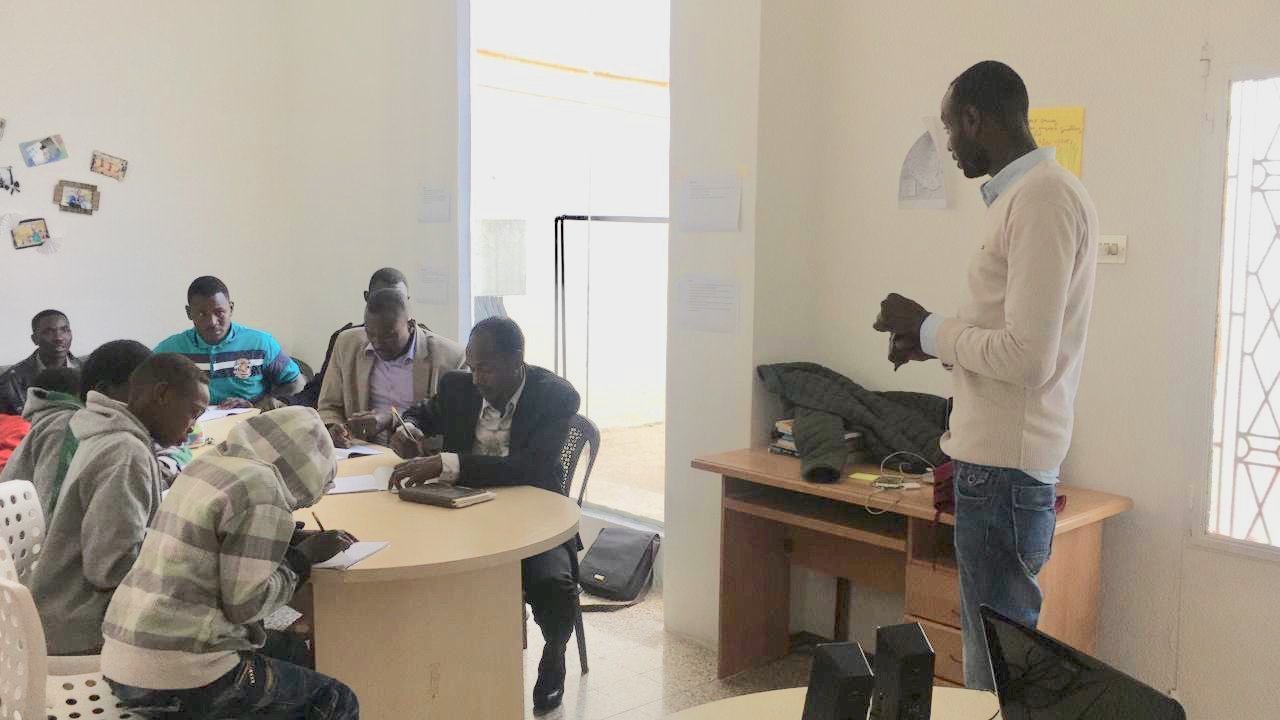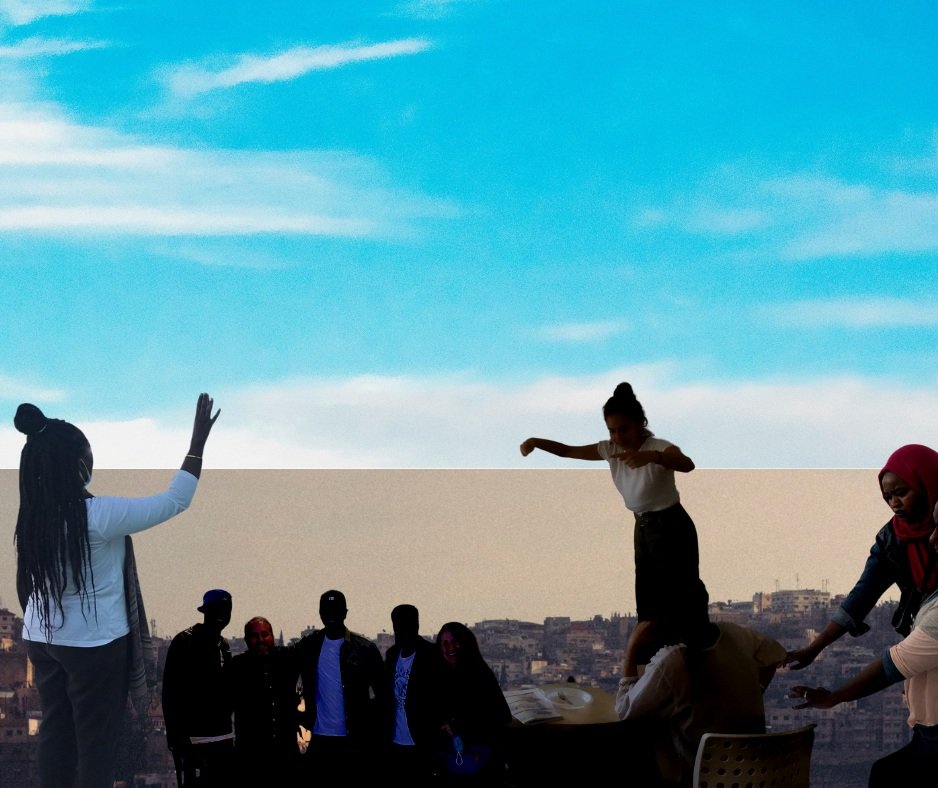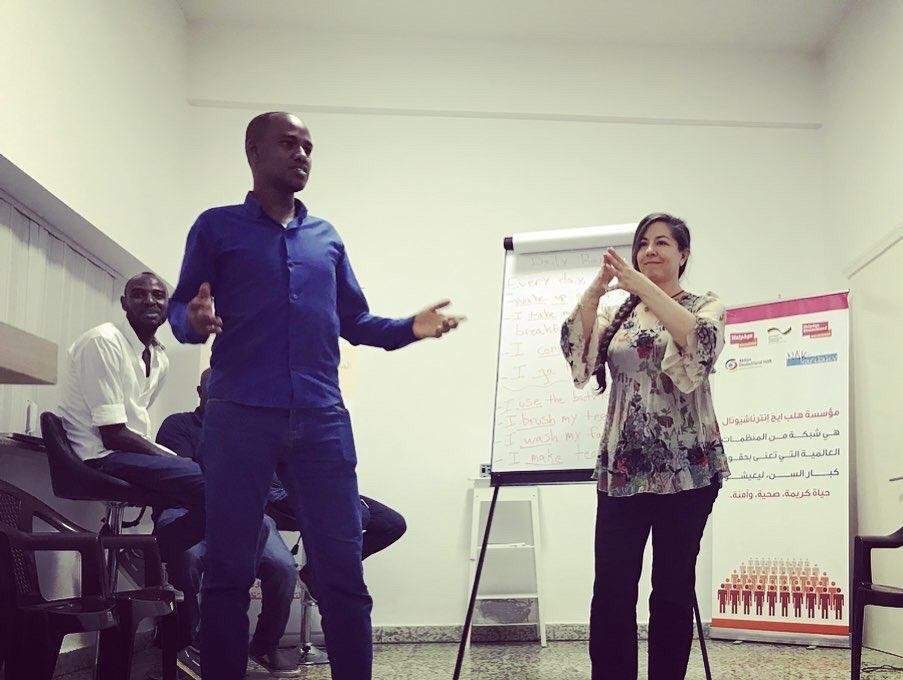
Re-imagining how to advocate, accompany, and care for those who serve our communities.
Our Story.
Locally Led is the culmination of channeling frustration about broken systems into hope and action. A collective created by those who passionately believe in the power of community-driven movement and how it brings about a healthier, just, more communal society. Created by and for those who have led community-based non-profits, refugee-led organizations, and social movement in different parts of the world. Who strongly believe that there is a more ethical, efficient, and relational way to finance, accompany, and support local and refugee-led change around the world.
Our Mission.
The Locally Led community wants to disrupt the traditional systems and thought around how we support and empower local CBOs, refugee-led organizations, and community-driven movements around the world…and in our backyard.
The humanitarian and development sectors preach ‘localization’ yet only 3% of all funding goes to locally-led organizations.
Learn about the kinds of community-based initiatives and movements we support and advocate with.
Where do we work?
Locally Led supports community and refugee-led organizations, volunteer groups, and initiatives in the Middle East, North Africa, South Asia, and in North America.
How we give?
Locally Led goes to the regions and communities it focuses on and meets face-to-face with leaders of organizations and initiatives currently operating within them. We spend significant time listening and learning from these leaders about the most critical issues their communities face and the variety of creative ways they mobilize to address them. These conversations eventually help identify how we should design our approach of support for each particular geographical area and how that support will look for each individual partner for that cycle. We prioritize investing in a relationship first…then the rest follows.
How do we evaluate?
Locally Led does not follow traditional MEAL approaches to evaluating those it supports. We let our partners decide how they will define success and partner with them relationally.
We listen.
We provide spaces to help partners process, document and reflect throughout the support cycle on what they’ve achieved and learned alongside the communities they work with.
We provide encouragement and mentorship whenever its needed or asked for.
We learn from our partners, throughout the support cycle, about all the great things they were able to do with our support and the things they’d do differently. We also learn from them throughout the process on the best ways we can encourage, and support their critical work.
What We Produce.
Research & Briefing
We produce in-depth research and policy briefing on the issues, causes, and lived experiences most critical to those we support and advocate for.
Advocacy.
We listen intently to the organizations and activists we support about the challenges and barriers they face, then, we develop advocacy campaigning, targeting stakeholders that could make a difference or who perpetrate barriers for those we support.
We push for local ownership and influence over the decision-making and strategy-setting that deeply affects their work and the communities they serve.
We create spaces and platforms that allow those we support and the communities they serve to speak directly to decision-makers at the local, humanitarian, development and donor level.
We listen, mobilize, then influence.
Reading List
Great work on issues we care about by folks we admire.
Locally Led’s report Is The Humanitarian Sector Practicing What It Preaches? An examination into what refugee response framework in Jordan tells us about the humanitarian sector’s real feelings on localization, impartial aid, and humanitarian principles.
Locally Led’s Editorial article The Cost of Complicity How shameful, moral apathy in the face of atrocities in Sudan, and apartheid in Palestine, has exposed the hypocrisy of the self-proclaimed ‘progressive, principled’ regimes of the Global North, their commitment to human rights, and their value of Black and Brown life at home and abroad…and why movements for racial and social justice must make them feel the cost of their complicity.
Kelly Hayes + Mariame Kaba’s new book on organizing and reciprocal care.
Bond provides tremendous insight into how to finance locally-led organizations in ways that best suit them. Using insight from locally-led partners throughout the world, including in the U.K., the report What makes a good ‘locally led’ funder? provides concrete ideas to help design funding models that are accessible and appropriate for locally-owned, sustainable development.
Sophie K. Rosa’s book ‘Radical Intimacy’ which argues for a re-imagination of ‘intimacy’ and depicts how remaking the world through connection, care, and community requires us all to have a ‘radical imagination’, to rethink how we see/engage with family, community, friendship, romance, the concept of ‘home’ and death.
ALNAP’s summary of their 2022 ‘State of The Humanitarian System’ is a critically important report looking into some of the most important issues the humanitarian sector needs to address. We recommend the section on ‘localization’ which gives tremendous insight into just why the sector is failing to live up to the pledges it made in the Grand Bargain.
Read this important piece of research from Johnston, Kvittingen, Baslan, and Verduijn on the importance of understanding the pre-existing social networks of refugee communities when designing refugee response planning.
South Africa-based Global Fund for Community Foundation’s report “Innovation for Localization” to “Local Philanthropy, Localization and Power” is a tremendous piece of research from the Global South on how unorthodox configurations of stakeholders + new and different kinds of partnerships might contribute towards transformative change within the international aid system.
A powerful piece from Immaculate Mugo and Tsitsi Marylin Midzi in Alliance Magazine on the importance to remember that one of the most critical parts of making pan-African and feminist philanthropies capable of addressing inequality is to ensure that it is not a tool for the powerful; but instead, an opportunity ‘to remind ourselves of our own traditional ways of giving as Africans who embody feminist values and principles.’









